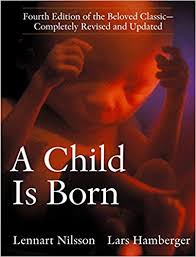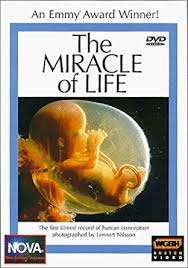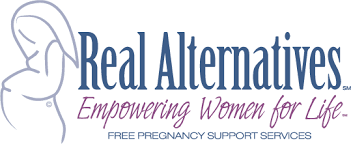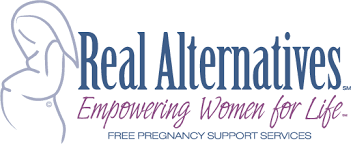 Real Alternatives serves women in three states - Pennsylvania, Indiana, and Michigan - as a frontline crisis pregnancy social service provider. Real Alternatives has additionally upheld the highest standards of ethical behavior and accountability, as evidenced by its multiple “Seal of Excellence” designations from the Pennsylvania Association of Nonprofit Organizations (PANO). In each case, a panel composed of peer organizations subjected the nonprofit’s history, financial structure, fundraising, and other practices to rigorous examination in accordance with PANO’s Standards for Excellence. This code of accountability and ethics encompasses more than 50 individual criteria. PANO anchors its Standards for Excellence in the qualities citizens typically look for in a trusted nonprofit service provider, including responsibility, trustworthiness, honesty, and fair dealing. Real Alternatives, one of the first four groups to gain certification through PANO’s Standards for Excellence, also became one of the first to gain such accreditation three times. As it has since the 1990s, the group continues to work with state governments to offer free counseling, parent education programs, adoption referrals, and access to education and supplies to meet basic needs.
0 Comments
 Based in Pennsylvania, the award-winning nonprofit group Real Alternatives offers women dealing with unplanned pregnancies support in choosing alternatives to abortion. To date, Real Alternatives has assisted hundreds of thousands of women, not least through its public education campaigns, including its online video “The Miracle of Life.” The video echoes the classic 1965 photo book A Child Is Born, by the Swedish researcher and photographer Lennart Nilsson. Born in 1922, Nilsson began his career as a photographer at age 12. While still in his teens, he developed an interest in microscopy and began to study and photograph insects. Using his Zeiss Ikon Ikoflex camera, he spent his young adulthood photographing nature and the environment. As a freelance photographer, Nilsson covered the liberation of Norway in the closing days of World War II. He made a number of ethnographic photo studies, including one dealing with fishermen in Africa and another focused on a midwife in Lapland. In the 1950s and early 1960s, emerging medical technology allowed him to photograph human blood vessels and other previously inaccessible areas of the body. In 1965, Life magazine published his photo spread depicting the development of human babies in the womb. The series made him internationally famous, and was collected into the iconic book. In later life, Nilsson contributed to documentary films on the wonders of life. He died in 2017.  A nonprofit provider of free counseling, parenting classes, and practical assistance for women experiencing crisis pregnancies, Real Alternatives also offers information on advances in ultrasound technology and studies on fetal development that can inform the process of choosing life. The organization’s website provides access to a scientifically accurate video titled “The Miracle of Life,” which sorts out fact from fiction as it traces the development of a child in the womb. At the moment of conception, the video points out, a unique and unrepeatable set of DNA is formed that will guide the development of the unborn child. At that moment, the baby’s entire collection of physical characteristics is determined. Only 22 days post-conception, the baby’s developing heart begins to beat. By the third week, facial features such as eyes and ears have begun to form. And only three weeks later, many ultrasounds can give proof of the presence of fingers and toes. At 11 weeks after conception, an ultrasound offers a sight that can surprise and delight a prospective parent: the unborn child’s ability to smile and frown. These are just some of the insights depicted in the video, whose three and a half minutes are capable not only of providing information, but of changing a life.  To date, some 300,000 women have reached out to Real Alternatives for help in coping with their crisis pregnancies. The organization provides free counseling, adoption referrals, and ongoing support in order to make it easier for women to choose life. Through the video “Empowering Women for Life,” available on its website, Real Alternatives offers the emotional personal testimonies of women who found hope thanks to the compassion of its staff and volunteers. Each of the women’s stories is different, but there are common threads: afraid, struggling with addictions or poverty, these women considered abortion and decided against it. One woman’s own mother attempted to force her to end her pregnancy, but the woman found herself unable to go through with an abortion. She looked to Real Alternatives for the support she needed to make the right decision for herself. When the baby was born, her mother was the first person to hold the child. Another woman knew that her addiction had the potential to kill both her and her unborn baby. Through the Real Alternatives provided, she persevered through her personal crisis and is now working to improve life for herself and her child. In the video, the group’s counselors note that being loved despite their mistakes can serve as a powerful incentive for people to turn their lives around.  Comprehensive prenatal care is a vital part of ensuring that a mother delivers a healthy baby. According to the U.S. Department of Health and Human Services, babies born to women who did not receive prenatal care are five times likelier to die and three times likelier to be born underweight than babies whose mothers did receive care. Real Alternatives administers Pennsylvania's Pregnancy and Parenting Support Services Program. Through the use of counselors at pregnancy support centers, social service agencies, and maternity homes, women receive supportive counseling from the moment they find out hey are pregnant through 12 months after the birth of their baby. During last fiscal year, over 7900 pregnant women received proper prenatal care through the Pennsylvania program. Beyond ultrasounds and regular checkups, prenatal care may focus on specific pregnancy issues, such as gestational diabetes. Practitioners also work with patients on more general issues, such as staying in good health through diet and exercise to avoid pregnancy complications. In addition, they oversee the patient's use of medications and prenatal vitamins. It is recommended that women visit their doctor once a month from weeks four through 28, once every two weeks from weeks 28 to 36, and once a week from weeks 36 through 40.  Real Alternatives partners with government agencies in Pennsylvania, Michigan, and Indiana to provide free pregnancy services and counseling for women in crisis. Due to Real Alternatives, numerous women have opted to give birth rather than undergo abortion. Studies conducted at various times around the world have shown the serious emotional consequences that can follow abortion. For example, a study of more than 50,000 California Medicaid recipients found that women who had had abortions were 160 percent more likely to require psychiatric assistance over the following three months than their counterparts who had given birth. For some, this higher incidence of the need for professional mental health services continued for four years or more. Another study, published in the British Journal of Obstetrics and Gynecology in 1980, reported that after only eight weeks, about one-third of women who had undergone abortion regretted that decision, and close to half experienced some type of nervous disorder. The universality of the issue is also illustrated by a 2011 article in the Iranian Journal of Psychiatry. The authors reported that in a survey of almost 300 women seeking post-abortion care in Tehran, at least a third had experienced associated psychological problems. These problems included depression, a lower sense of self-worth, guilt, nightmares, and fears of not being able to conceive again.  Researchers at the National Center for Health Statistics, using new data of never-married teens, found a record 58% of girls and 56% of boys between 15 and 19 years old had abstain from vaginal intercourse. Coinciding with this increase in teens choosing abstinence and less teen sexual activity, teen birth rates and teen abortion rates are at a record low. In fact, the majority of teens who have had sex say they wish they had waited. Teenagers may decide not to have sex to uphold moral values or to avoid pregnancy and sexually transmitted disease. The only 100% way to avoid unexpected pregnancy and contracting sexually transmitted diseases is for both people to postpone sexual activity until marriage. For teens who have already had sex, there is always the option to choose abstinence going forward, reduce the frequency of sexual activity as well as reduce the number of sexual partners. Teenager who choose abstinence may feel pressured to do so. Ways to withstand pressure include remembering that it’s possible - and healthy - to care about and love someone without having sex, and to be clear about your decision with your partner. Going on dates in groups and in public places, as well as always having an escape plan for situations where you may feel uncomfortable, are also good strategies for keeping your vow to abstain. Mostly importantly, remember that you are in control of your life and your decisions. This will help you stay strong if you feel pressured by others to have sex  Through a life-affirming network of social services in states including Michigan, Pennsylvania, and Indiana, Real Alternatives provides dedicated support to women considering an abortion. Real Alternatives’ confidential services extend to assisting clients in bringing their pregnancy to term. The organization’s commitment carries through to supporting the parenting decision after the child is born, for the first 12 months of the infant’s life. With access to local care providers who can be accessed by calling 1-888-LIFE AID, new mothers are encouraged to pursue free parenting classes. New mothers are also connected with coordinated resource providers that encompass food assistance, health coverage and care, and temporary shelter. Other areas in which staff members work with new mothers include securing baby clothing and maternity wear, as well as furniture. The key point is that welcoming a new child into the world is a wonderful experience that does not need to be stressful or induce fear.  A nonprofit organization headquartered in Harrisburg, Pennsylvania, Real Alternatives provides free supportive services to assist new and expectant mothers. Striving to help women find life-affirming alternatives to abortion, Real Alternatives has received statewide recognition for its innovative approach to social services. In 2004, the Central Pennsylvania Business Journal recognized Real Alternatives as a finalist in its annual Nonprofit Innovation Award program. Featured in the Operations/Technology category of the yearly recognition program, the nonprofit earned recognition for its proprietary Automated Program Outcomes Measure tool. This process allows the organization to track the results of its counseling services, ensuring that each woman who accesses these services benefits from the organization’s approach to crisis pregnancy support. Using its Automated Program Outcome Measure tool, Real Alternatives is able to assess how its counseling services impact the parenting skills, adoption education, reproductive health, support network, and child birth decisions of expectant mothers. In this way, it can more easily hold its partner service providers accountable and implement data-based program improvements. At the time of its status as a Nonprofit Innovation Award finalists, the organization was monitoring the outcomes of more than 16,000 women receiving services at some 125 centers. Since then, it has expanded its offerings to both Indiana and Michigan.  A nonprofit organization that provides human support services throughout Pennsylvania, Indiana, and Michigan, Real Alternatives maintains a pro-life mission and assists women in navigating unplanned pregnancies. Real Alternatives’ unique approach utilizes service providers and a network of existing community agencies. In Pennsylvania alone, a 95-strong service provider center network encompasses pregnancy support centers, maternity homes, social services providers, and adoption agencies. The steps involved in becoming part of the quality-focused network are stringent and include a host of preliminary documentation that includes verified 501(c)(3) tax-exempt nonprofit status, a pro-life mission, and at least one year of experience in offering abortion service alternatives. Among the other requirements, providers cannot charge eligible clients a fee and cannot discriminate. They agree that all eligible clients will be served, regardless of their English proficiency level. Once the preliminary requirements are met, further documentation, such as Corporate Articles of Incorporation, are submitted and a further review of a potential service provider’s capacity to fulfill the overarching mandate is performed. After review of corporation documents, a site inspection occurs to ensure clients will be served in a safe and comfortable office. |
AuthorLaunched in 1996 through a state-sponsored initiative to lower abortion rates, Real Alternatives originally served women through 72 centers across Pennsylvania. Archives
November 2018
Categories
All
|
 RSS Feed
RSS Feed
